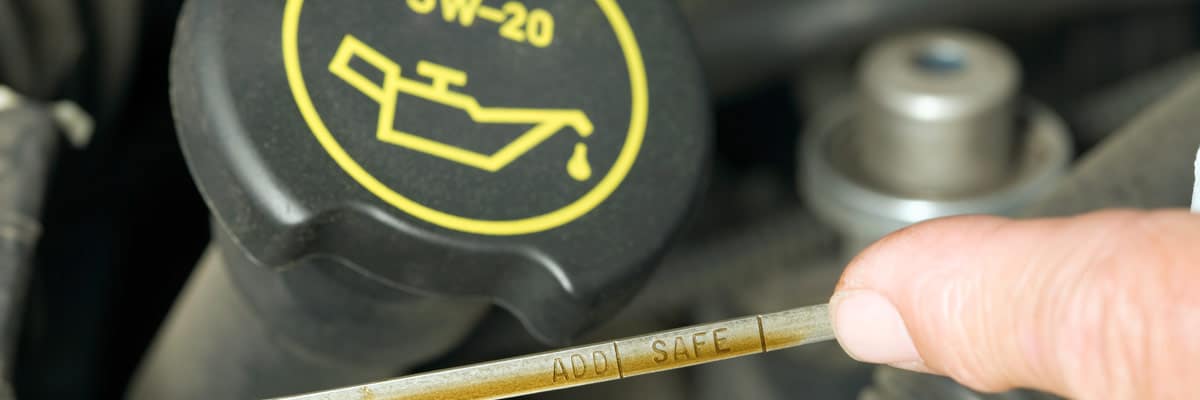When to Get Your Engine Oil Changed
November 19, 2020
Changing your car’s oil is just one of those things that you know you have to do, even if you don’t want to do it. Like brushing your teeth or grocery shopping. There’s just no way around it, you have to change your oil if you want your car to run more than a year or two after you buy it. But how often should you be changing your oil? Depending on who you ask it could vary from every 3K miles to every 6 months to every 7,500 miles. The answer can be confusing and it can vary based on your driving habits and the driving conditions you see on the daily. Hopefully, this article will help to simplify that for you so you have a more accurate picture of how often should you change your oil.

It used to be that the recommended mileage for how often you need an oil change was 3,000 miles, but because of advancements in technology that improve the fuel-delivery systems of your car, better engine materials, manufacturing methods, and even oil chemistry, that number has climbed a bit. Nowadays, your car’s engine is likely able to achieve about 7,500 miles or even 10,000 miles before needing your engine oil swapped out for a new batch.
While Your Vehicle Still Has a Warranty
When your car is still shiny and new and the warranty is still valid then you will want to stick to the recommendations in the owner’s manual so you don’t end up voiding your warranty. That means following what the manufacturer recommends for the oil type, mileage, and how often to change your oil.
Most newer vehicles have a built-in monitor that keeps an eye on your oil’s quality and oil-life. This uses some fancy algorithms, sensors, and software that keeps track of drive temperatures, cold starts, driving hours, hours spent idling, and engine revs. The monitor then uses that data to calculate the oil’s condition and how often you would need to change your oil to preserve your warranty.

One thing to note is that the oil monitor is calibrated to measure the data from the oil type recommended in your owner’s manual. If you are using a different oil then that data won’t be accurate and you may accidentally void your warranty if you’re not careful. Getting your oil changed at a dealership service department, at least while your car is covered under the warranty, is probably the best move because they will be able to keep you on a schedule and make recommendations for your car that won’t void its warranty.
Once Your Vehicle Is Out of Warranty
Once your car’s warranty has expired, or you are buying a used car, figuring out how often you need an oil change is pretty much up to common sense. You can always still rely on the oil-life monitor to help determine when you are needing an oil change, but if you aren’t planning on following the monitor path then this is where it can get tricky. There are different recommendations for oil change frequency for normal driving and severe driving. Intervals vary widely depending on which mechanic or friend you ask, whether you are towing a trailer or car frequently, the time of year (think weather and temperature), and even where you drive. Normal driving you can probably expect longer oil-life so you won’t need to change your oil as often. Severe driving means that you are putting your car and the oil through the wringer and the best move here would be to change your oil much more frequently to avoid breaking anything.

Severe Conditions include:
- If you make a lot of short trips or five miles or less in normal temperatures
- If you make a lot of short trips of 10 miles or less in freezing temperatures
- Extreme hot-weather stop-and-go driving (continually stuck in traffic during those 90+ degree days during the summer)
- Driving at low speeds for long distances
- Spending a lot of miles on dirt, dusty, salty, muddy, sandy, or gravel roads
- Long-distance trailer towing
- Track driving
Are Frequent Oil Changes Better for Your Car?
Most service technicians and service drives will tell you that shorter change intervals are better (3000 to 5000 miles). Shorter change intervals can never hurt your car but it will cost you more in the long run. Also, when your car is in for an oil change other items that have been worn out will become apparent like brake pads, tires, shocks, coolant, etc. which all adds up on the bill. Nearly all of us fall into the category of normal driving, you can stick to the manufacturer recommended oil change interval which is usually longer than the 3K to 5K miles recommended by service shops. Of course, if you have an oil-life monitor in your car then stick to listening to that.
Oils That Live Longer
So you’ve seen the ads or heard the rumors about using premium extended-life expensive synthetic oils to achieve a projected 10,000 miles, possibly even 12,000 miles, before needing to change your oil. The question is are they safe for your engine to switch to? Right off the bat, almost all newer cars use synthetic oils, so if the manufacturer says you have to use it, then you have to use it. There is no switching from synthetic oil to regular oil if your engine is built for synthetic. Older vehicles, however, weren’t filled with synthetics when new and still use the conventional petrol-based oil. In that circumstance, you have a choice. To go synthetic, or not to go synthetic.
There are certain oil refiners that produce very sophisticated carmaker-approved extended-life oils that actually do help stretch the time between engine oil changes. These oils are chemically specialized that support their ability for longer distances, in layman’s terms they don’t breakdown as quickly as their petroleum-based cousins. They resist high-temperature breakdown better and are designed to keep dirt and other particles floating around longer so that the oil filter can catch them easier. They also cost more than petroleum-based oils so you’ll need to do some math to see if switching to synthetic is the right move for you and your wallet.

Some Last Words of Advice
If you are driving on dirt roads or in dusty or road-salted environments and do lots of cold starts and short drives, the factory oil filter may not be up for the challenge. This is one of those severe drive scenarios. It is highly recommended that you replace your oil filter at the same time you are getting your oil change if you are driving on severe terrain. A note on the longer-range oils, they can sometimes become contaminated because of the volume of combustion gases that blow past worn piston rings of older cars. This means that at some point the oil is no longer protecting the sliding surfaces in the engine as well as it is supposed to which leads to some serious engine troubles. One last recommendation; almost no auto manufacturer recommends that oil be left in the crankcase for more than one year. Doesn’t matter if you’ve put 10,000 miles on it or it’s only moved from the driveway to the garage. Over a year and it needs an oil change.
Going Green
If you are someone who changes their own oil just be sure to recycle it properly. Most dealerships and/or auto-parts stores will take back used oil at no charge but always call to double-check before you drive over there.
Whether you are taking your car to a shop or doing it yourself, changing your engine’s oil will keep your car up and running longer and better so make sure you are doing that at the proper intervals is essential.
Have a question? Our service team stands ready to help answer any and all questions you may have.
Contact Us